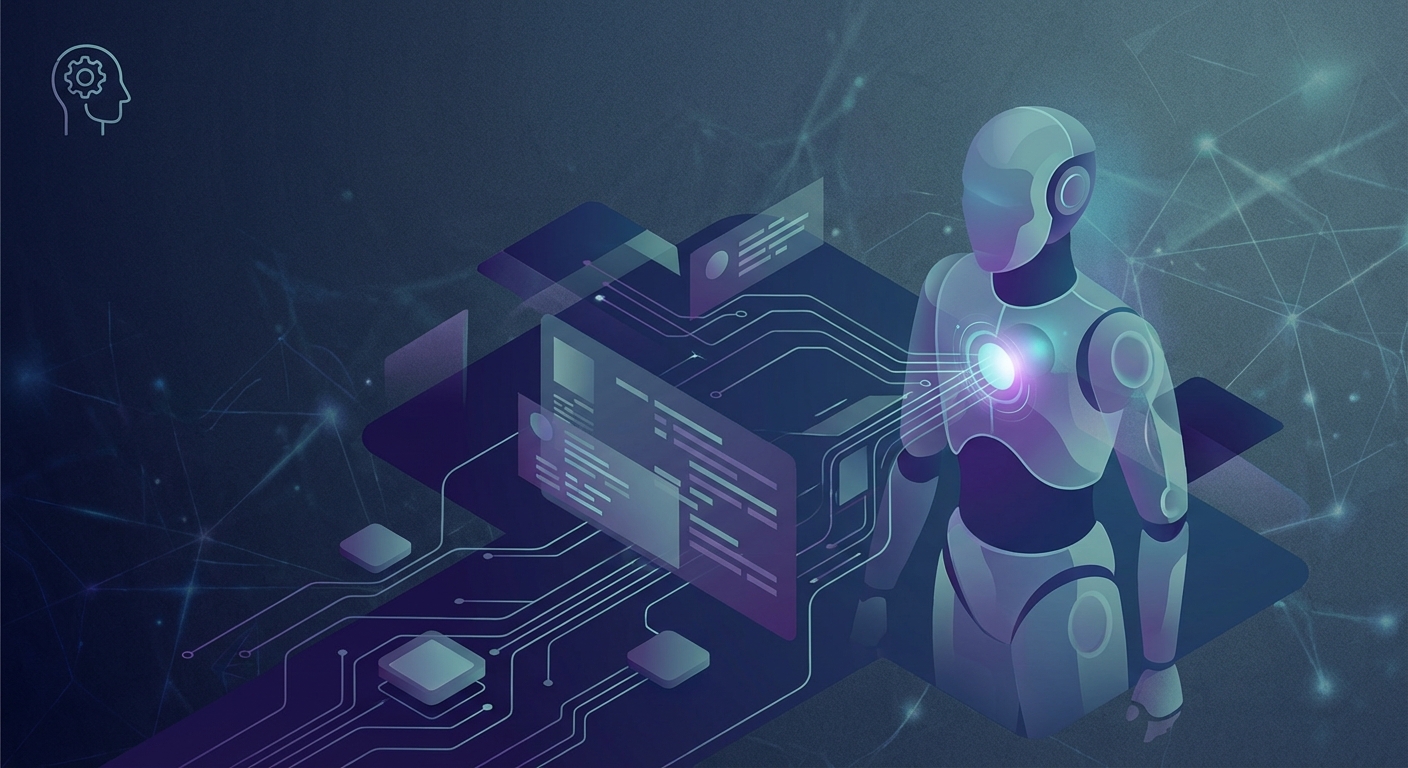Navigating the AI Frontier: Overcoming Emerging Challenges in Agent Deployment
TL;DR
- This article identifies key challenges in AI agent deployment, including security vulnerabilities, governance complexities, and ethical considerations. It explores strategies for effective IAM, model management, and lifecycle oversight to ensure successful integration and responsible use of AI agents within enterprise environments. It also covers the importance of continuous monitoring, performance optimization, and robust testing frameworks.
Understanding the Landscape of AI Agent Deployment
AI agents are transforming how businesses operate, but deployment isn't always straightforward. Successfully navigating this landscape requires a solid understanding of ai agents and their roles.
ai agents are autonomous entities designed to perform specific tasks. These agents use ai to perceive their environment, make decisions, and take actions to achieve set objectives.
- ai agents automate tasks in finance, such as fraud detection and algorithmic trading.
- In healthcare, they assist with diagnosis and personalized treatment plans.
- Manufacturing benefits from ai agents that optimize processes and predict equipment failure.
Effective ai agent orchestration ensures these systems work together smoothly. This means coordinating multiple ai agents, managing their interactions, and ensuring they operate in sync to achieve a larger goal. For example, in a customer service scenario, one ai agent might handle initial query routing, another might retrieve customer information, and a third might generate a response, all orchestrated to provide a seamless customer experience. Integration with existing systems is crucial, yet challenging, due to data silos and interoperability issues. This involves connecting ai agents to databases, apis, and other software so they can access necessary information and trigger actions outside their immediate environment. Think of an ai agent needing to access a company's inventory system to check stock levels before confirming an order – that's integration.
- Seamless data flow enhances decision-making across different ai agents.
- Robust orchestration tools, like workflow engines or specialized platforms, are essential for managing complex ai deployments.
- Interoperability, often achieved through standardized apis or middleware, allows ai agents to leverage each other's capabilities, boosting overall efficiency.
Understanding these fundamental aspects sets the stage for exploring deployment challenges. The next step involves examining the growing importance of ai agent orchestration and integration.
Security Risks and Mitigation Strategies in AI Agent Deployment
ai agents are increasingly entrusted with sensitive tasks. As ai agents become more prevalent, securing them is paramount to prevent exploitation.
- Data poisoning involves corrupting the training data, causing the agent to make biased decisions.
- Model hijacking allows attackers to take control of an ai agent by exploiting vulnerabilities.
- Insecure APIs and access controls can expose ai agents to unauthorized access and manipulation.
Implementing robust Identity and Access Management (IAM) is crucial. This means strictly controlling who or what can access ai agents and their data. Zero Trust principles are also essential to minimize the attack surface. Zero Trust operates on the idea of "never trust, always verify." Instead of assuming trust within a network, every access request, whether from inside or outside the network, is authenticated and authorized. For ai agents, this means rigorously verifying every interaction, from data ingestion to api calls, ensuring only authorized entities can access or control them.
- Use service accounts, certificates, and tokens for authentication and authorization.
- Continuously verify trust at every stage of the ai agent workflow.
Security frameworks help guide the implementation of security measures. Meeting compliance requirements protects sensitive data.
- Relevant frameworks include the NIST ai Risk Management Framework.
- Compliance requirements include GDPR and CCPA.
Securing ai agents requires a comprehensive strategy. Given the technical security measures we've discussed, it's also vital to consider the broader implications of ai agent deployment. Next, we'll explore the governance and ethical considerations that ensure these powerful tools are used responsibly.
Governance and Ethical Considerations for Responsible AI Agent Use
ai agents are powerful tools, but their use raises important questions. How do we ensure these systems are fair, transparent, and accountable?
- Roles and Responsibilities: Define who is in charge of ai agent development and deployment. This includes setting policies that prioritize ethical considerations.
- Risk Management: Develop comprehensive risk management strategies. This is particularly critical in finance, where ai agents manage significant assets and make critical decisions.
- Fairness and Bias: Implement strategies to detect and reduce bias in ai models. For example, in healthcare, ai agents used for diagnosis must not discriminate based on patient demographics.
- Transparency and Accountability: Ensure ai decision-making processes are understandable. Interpretability helps to build trust and confidence in ai solutions.
- Policy Management: Establish clear policies to govern ai agent behavior. These policies ensure compliance and ethical operation.
As we navigate the ai frontier, it's crucial to prioritize fairness and transparency. Let's consider how Technokeen helps organizations achieve responsible ai deployment.
Managing the AI Agent Lifecycle: From Development to Retirement
As we continue to explore ai agent deployment, it's important to consider the entire lifecycle. Let's now examine managing the ai agent lifecycle, starting with model versioning. This involves tracking different iterations of your ai models, ensuring you can revert to previous versions if issues arise or deploy new versions seamlessly. Beyond versioning, the lifecycle encompasses:
- Development: This is where the ai agent is designed, trained, and initially tested. It involves selecting appropriate algorithms, gathering and preparing data, and building the core logic.
- Testing and Validation: Rigorous testing is crucial to ensure the agent performs as expected, meets performance benchmarks, and adheres to security and ethical guidelines. This can include unit testing, integration testing, and adversarial testing.
- Deployment: This is the process of making the ai agent available for use in its intended environment, whether it's a cloud platform, an edge device, or an application.
- Monitoring and Maintenance: Once deployed, ai agents need continuous monitoring for performance degradation, drift, or unexpected behavior. Maintenance involves updating models, retraining with new data, and patching vulnerabilities.
- Retirement: Eventually, ai agents may become obsolete or be replaced by newer technologies. A planned retirement process ensures data is archived appropriately and resources are freed up.
Effectively managing each stage of this lifecycle is key to maintaining the reliability and effectiveness of your ai agent deployments.
Future-Proofing Your AI Agent Deployments
ai agents are rapidly changing business landscapes, but how can you ensure they remain effective as technology evolves? Future-proofing your deployments means staying proactive and adaptable.
Implement MLOps (Machine Learning Operations) and AI DevOps to streamline workflows and foster continuous improvement. MLOps and AI DevOps are practices that aim to automate and standardize the process of building, deploying, and managing machine learning models and ai systems, much like DevOps does for traditional software. They help in faster iteration, better collaboration, and more reliable deployments.
Automation plays a key role in managing the ai agent lifecycle, ensuring timely updates and maintenance.
Collaboration between data scientists, engineers, and operations teams is essential for successful deployments.
Keep abreast of potential ai regulations to adapt your agent deployments. For instance, regulations might emerge around data privacy for ai systems, requirements for explainability in critical decision-making ai, or standards for ai safety.
The Cybersecurity and Infrastructure Security Agency (CISA) may play a role in managing ai deployment risks, according to the R Street Institute.
Agility and flexibility in ai agent strategies are crucial for long-term success.
Standardized tools and interfaces can simplify deployment and integration.
Selecting the right platform for your specific needs is a key consideration.
Consider the environmental friendliness of ai, as sustainable ai practices are becoming increasingly important.
By embracing these forward-thinking strategies, you can ensure your ai agent deployments remain robust and effective.
Conclusion
ai agents are reshaping industries, but responsible innovation is crucial for ethical deployment. What steps can organizations take to ensure ai benefits society?
- We must prioritize ethical ai development. This minimizes bias and promotes fairness in ai decision-making across sectors like healthcare and finance.
- Proactive risk management is essential. This includes establishing clear roles and responsibilities for ai agent oversight.
- Fostering a culture of transparency builds trust. Interpretability of ai decision processes is key.
Looking ahead, the capabilities of ai agents will only continue to grow, opening up new possibilities and challenges. By focusing on robust deployment strategies, strong security, and unwavering ethical principles, organizations can harness the full potential of ai agents while building a future that is both innovative and responsible.




